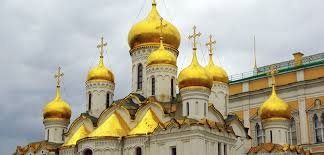
Anatoly Aksakov, the Chairman of the Russian State Duma Committee on Financial Markets, has revealed that Russian lawmakers are looking to pass the bill on digital financial assets, or cryptocurrencies, during the autumn session of the Duma. According to local news outlet Izvestiya, Russian crypto miners and holders will be regulated under the Internal Revenue Code. Separate tax frameworks solely for cryptocurrency will not be drawn up.
Aksakov said:
“Separate tax regimes for owners of digital currency will not be described in the regulation text.”
However, separate schemes may appear in the future if the government finds it necessary, according to Aksakov.
“If they feel like creating separate statutes for this type of business, then they’ll create them. For now, we’re not going to deal with issues in any form.”
He added:
“If they want to determine tax rates for these types of businesses separately, they will. We are not addressing tax issues in any way so far.”
As mining and circulation of cryptocurrencies will be regulated under existing provisions of the Russian Tax Code, those engaged in these processes will pay personal income tax, while legal entities will have to pay taxes in accordance with their type of business.
In October of last year, Russian President Vladimir Putin obliged the government and the Bank of Russia to prepare legislation on ICO and cryptocurrencies by July 2018, that’s why developers of the new regulations had originally planned to legitimate them by July 1, with lawmakers themselves adopting an increasingly hands-on approach to cryptocurrency earlier.
Russian authorities are strict in respect of digital currencies. Last year, St. Petersburg authorities banned disseminating information about cryptocurrency. Several cryptocurrency ATMs installed earlier, disappeared.
In May, the Russian State Duma’s Committee for Legislative Work announced that it would support the first reading of an initiative for establishing norms for the digital economy in the Russian Federation Civil Code with the aim to “minimize the existing risks of using digital objects for transferring assets into an unregulated digital environment for legalization of criminal incomes, bankruptcy fraud or for sponsoring terrorist groups.”
To minimize the risk of fraud, the Russian Association of Cryptocurrencies and Blockchain has created a registry of whitelisted companies that offer crypto-related products or services.
Despite strict regulation, Russian companies conduct crypto-related business. In April of this year, the third-largest banking institution in Russia, Gazprombank, announced its plans to conduct crypto deals by the year-end in Switzerland as a part of the pilot program through its Swiss subsidiary.